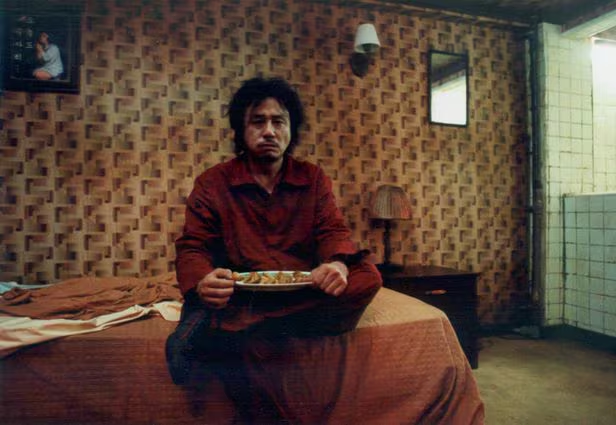The Sympathizer (TV series, 2024) is currently airing on HBO in the US and Coupang Play in Korea. Based on the 2015 Pulitzer Prize-winning novel of the same title by Viet Thanh Nguyen, the series follows a half-French, half-Vietnamese CIA double agent navigating questions of identity and belonging.
Set in post-Saigon Los Angeles, Vietnamese refugees, including the captain, struggle to adapt. While others settle into American life, the captain grapples with his race, cultural identity, and loyalties. His mission to spy on the General for the newly established socialist government of Vietnam, while posing as a CIA operative, only deepens his sense of alienation. As he tiptoes between identities and allegiances, the series explores themes of displacement, assimilation, and the complexities of espionage in a changing world.
The showrunner and director of the series, Park Chan-wook, is no stranger to the exploration of displaced identities concerning class and gender. In his vengeance trilogy – Sympathy for Mr. Vengeance (2002), Old Boy (2003), and Lady Vengeance (2005) – which earned him a place in the hall of fame of Korean cinema and numerous international accolades, it’s evident that his artistic focus is on creating a world of beautiful chaos where the conceptual boundaries we rely on to understand the world collapse in a spectacularly elegant manner. His meticulous attention to stylistic details portrays characters who are bewildered and lost amidst the deterioration of the familiar and conventional.
The mute factory worker in Sympathy for Mr. Vengeance decides to sell his organ to pay for his sister’s hospital bill. But his plans go awry when the organ traffickers take his kidney and disappear without paying. In desperation, he kidnaps the daughter of a wealthy man for ransom and consequently puts himself in a vulnerable position to be targeted by the vengeful father. Whether it is the absence of social welfare system or the capitalism gone crazy that he wants to point out as the root cause of this horrendous situation, there is no single explanation to elucidate their existences. They are helplessly exposed to contradiction and absurdities of being in this modern world. It is said that Park’s artistic influence comes from Hitchcock and Hollywood B movies. Certainly one can feel a sense of irony in his complex characters as in B movies, and identities in disarray as in some Hitchcock’s films.
Park Chan-wook is a product of a transformative period in Korean cinema, during which the primary motivation was the sustainability of the Korean film industry. Amidst the backdrop of the free trade agreement with the US, which significantly reduced barriers to imports from Hollywood, prioritizing market logic on a broad scale emerged as the only viable option to sustain the market for Korean films. Thus, there was a surge in what we now call Korean blockbuster films, characterized by Hollywood-style filmmaking that competes quite successfully for audience share with Hollywood productions. Three founding daddies of Korean blockbusters (in my personal view), Kang Je-gyu, Lee Joon-ik, and Bong Joon-ho, revitalized Korean cinema, making it an appealing choice for audiences with their flair for spectacle, compelling storylines tailored to Korean tastes, and the introduction of unfamiliar genres such as creature films.

Park Chan-wook rode this wave of change alongside his fellow directors, and his stylistic experimentations in the 90s, which initially seemed too avant-garde, coalesced magically into an elaborate portrayal of the wretchedness of life on the darker side of capitalist progress. In Park’s cinematic universe, beauty is never lost, even in the most painful moments. In Old Boy, Dae-soo wields a utility hammer, dispatching thugs lined along the long corridor of a private cell where he was inexplicably held captive for 15 years. As his anger consumes him, Dae-soo senselessly drives the hammer into skulls, moving down the corridor toward the perpetrator of his imprisonment, with the camera following his almost balletic movements without interruption.
Although Park’s film career coincided with the era of Korean blockbusters, his films wouldn’t fit neatly into that category. Park’s films feature compelling stories, but they revolve around characters that lack redeeming qualities. While there are spectacles in his films, they consist of miseries, despair, anguish, and torment meticulously crafted into a theatrical perfection of style. After all, it might have been a natural choice for him to undertake the Sympathizer as his TV project.
